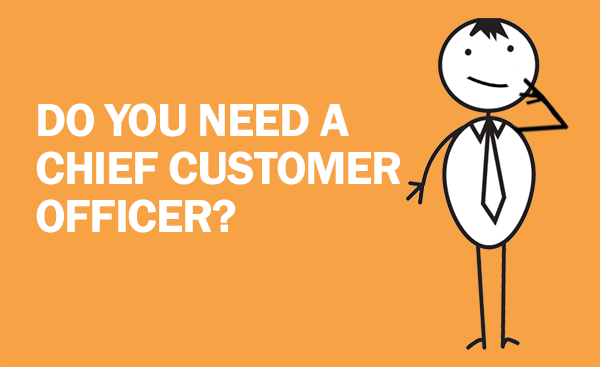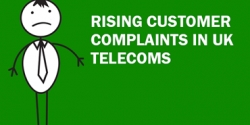Do you need a Chief Customer Officer?

Customers are becoming ever-more demanding, across every channel, while competition has never been fiercer. All of these factors mean that the customer experience is now central to winning and retaining business for organizations of all sizes. Customer service is now everyone’s job, from the CEO downwards. But who should be in overall charge of ensuring that the organization continues to be customer-centric?
For a growing number of companies, this role is being filled by a Chief Customer Officer (CCO). While this job title has been around since 1999, it is still poorly defined, and unlike many senior management positions, it lacks the backing of specialized training programs and is often misunderstood by companies, their staff and customers.
The Chief Customer Officer Council defines the role of the CCO as, “an executive that provides the comprehensive and authoritative view of the customer and creates corporate and customer strategy at the highest levels of the company to maximize customer acquisition, retention, and profitability.”
Based on this, there are three things that differentiate the CCO from other roles such as Customer Service Director, VP of Service or Chief Marketing Officer:
1. Independence
They are not part of a specific business department, such as customer service or marketing. In theory this means they operate independently, across the organization, with a total focus on the customer. This doesn’t mean they don’t have responsibility – one of the key factors outlined in the definition above is a requirement to maximize customer acquisition, retention and profitability. This is a step change away from the experience of many of those that head up customer service departments, which can be seen as cost centers, rather than drivers of increased profitability. In contrast a Chief Marketing Officer may be too outward facing and focused on marketing to prospects, rather than being responsible for the needs of existing customers.
2. Seniority
In order to have the power to work across departmental boundaries the CCO has to be one of the most senior executives in the company. This means not just a seat on the board, but a direct reporting line to the CEO themselves. According to Forrester 75% of CCOs are part of their company’s senior management team. At a time when their role is not always well-defined this has had an impact on their tenure – the average length of time a CCO spends in his or her role is 26 months, the shortest in the C-Suite. External pressures, such as the recent recession, have led to companies shelving the idea of having a CCO as they have cut costs in the short-term, even though it may impact longer-term customer loyalty.
3. Responsibility and understanding
To justify their position, the CCO must be the ultimate authority on the company’s customers, with deep insight into their needs and the ideas to ensure that they are fulfilled for the long-term. This doesn’t just mean keeping existing customers happy or fixing service issues, it requires the creation of strategies that will retain the right customers, increase their loyalty and profitability and grow revenues by creating more of them. To do this involves a plethora of skills, from understanding the market and customer needs to a deep knowledge of the digital customer experience, along with the leadership to ensure the whole organization is truly customer-centric, rather than just paying lip service to the idea. Finding this mix, in a single individual, can be difficult, meaning that good CCOs are heavily sought-after.
So what can a CCO do for your business? They should be able to deliver benefits in four areas:
- Increase the customer base
- Enhance profitability of all customers
- Increase loyalty and turn the customer base into a business asset
- Champion the customer and provide a counterweight to argue against decisions that could impact their interests and loyalty
All of this directly impacts the bottom line – further research from the CCO Council found that 67% of companies with a CCO saw positive fiscal effects during their tenure, with an average growth 5.98% above that of peers.
Clearly, the CCO role is more than just the latest buzzword and can make a real difference to how companies operate. Equally, they need the right support, power and corporate desire to become customer-centric if they are to achieve on their objectives. However, given the importance of the customer experience, expect more and more organizations to employ CCOs as they look to win and retain happy customers and boost long-term revenues.







Comments